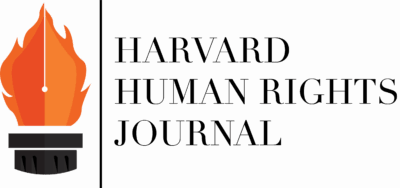By S. Chehani Ekaratne
Click here to read full article (pdf)
In the United Kingdom (“U.K.”), the Terrorism Act 2006 criminalizes statements likely to be understood as encouraging terrorism.1 Such statements include those that glorify terrorist acts.2 This offense is not a necessary response to the very real threat of terrorism. Statements that glorify terrorism may be and have been successfully prosecuted under other, more narrowly tailored statutes. The glorification provision, however, covers a broad range of generalized statements. It is precisely this breadth and definitional vagueness that makes the statute problematic; it is a needless constraint on free expression in a democratic society. The glorification provision should be narrowed to criminalize only statements that either furnish practical information or incite specific crimes. This note argues that the current glorification offense is not necessary, and that narrower offenses linked to specific crimes can protect against terrorism.
Part II describes the statutory basis for the offense of glorifying terrorism. Part III analyzes its implications and problems in more detail. Part IV compares the glorification offense with other relevant restrictions on expression in the U.K. Many “glorifying” statements are in fact covered by, and have been prosecuted under other statutory provisions, some of which are not specifically terrorism-related. Part V makes recommendations for modifying the glorification statute, drawing on the U.S. legal approach to the same problem. Part V focuses on pragmatic considerations and the general importance of free expression in a democratic society. To protect free expression, the glorification provision should be narrowly targeted to statements that either give out practical information or incite specific crimes.
